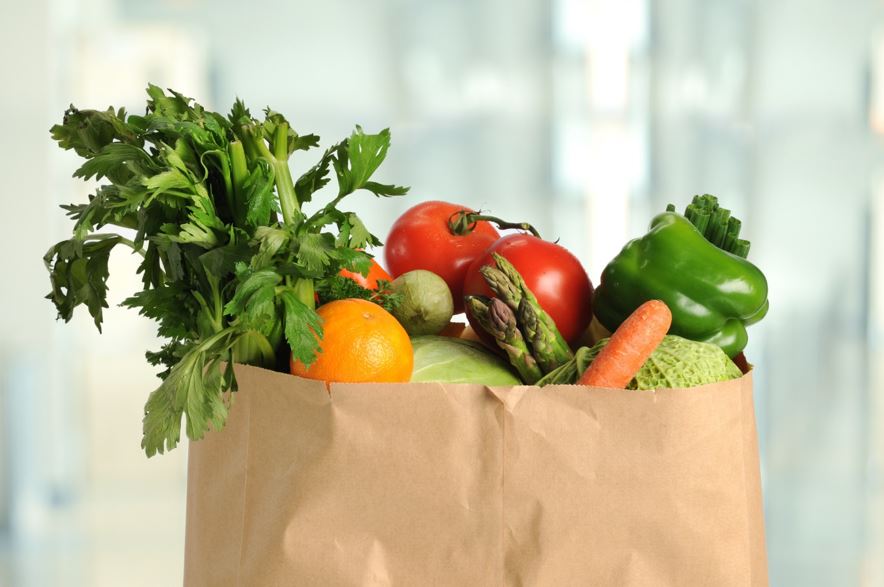Save on Healthy Food: Grocery Shopping Tips for a Healthy Body and Happy Wallet
The average amount Americans spend on groceries each month varies widely depending on where they live in the country, from about $300/month in Atlanta to over $500/month in Seattle.
That doesn’t even include money spent on eating out, however. A recent survey showed that when Americans do eat out, they eat out a lot.
Getting take out or dining at a restaurant tends to be less healthy and more expensive than cooking for yourself at home.
If you’re trying to stay healthy and avoid paying an arm and a leg for food, check out these grocery shopping tips.
Meal Planning
One of the most essential healthy grocery shopping tips is that you should be planning out your meals each week ahead of time. Take a look at your cabinets and fridge to see what you already have and incorporate them into your meal plan for the week. You can then make your grocery list based on only what you know you’ll need for that week, which will avoid wasting both money and food.
Don’t Stray From Your Grocery List
After you’ve planned out your meals, you’ll want to stick to your grocery list. Don’t allow yourself to get sidetracked in the store. Otherwise, you could end up coming home with expensive, unnecessary items that happened to catch your eye.
Make Cooking at Home the Norm
When you don’t have a plan ahead of time, it’s easy to just get take out. Take out is convenient, but it’s a lot more expensive than cooking at home. One way to ensure that you don’t get tempted by eating out is by doing meal prep on the weekend, where you cook all of your meals for the week in one big session.
Aim For Leftovers
Even if you opt to not do a full meal prep on the weekend, you can still cook larger portions than necessary when you do. This means you’ll have leftovers to bring to work for lunch or for dinner the next night.
Avoid Shopping When You’re Hungry
One of the most important grocery shopping tips for healthy eating is to avoid shopping on an empty stomach. If you are hungry while you shop, you’ll end up spending way more than you intended.
Buy Whole Foods Rather Than Processed Foods
The more processed a food item is, the more money you’re paying for what it is. If you’re looking for cheap grocery shopping tips, this one will radically lower your grocery bill. Buying blocks of cheese rather than shredded cheese, whole vegetables rather than pre-chopped veggies, and avoiding prepared foods will save you quite a bit.
Look for Generic Brands
Many generic brands these days produce organic and natural foods that are of similar quality to more expensive name brands. While you’ll want to make sure you’re still getting high-quality foods, make sure you aren’t paying more just for the label.
Keep Away From Junk Food
If you’re trying to eat healthily, you’ll want to cut out junk food. If you’re trying to eat cheap, you’ll want to cut out junk food. Therefore, if you’re trying to eat healthily and for cheap, you should definitely cut out junk food!
Look Out For Sales
If a staple food is on sale this month, stock up on a little extra. This will save you money in the long run.
Use Coupons
Coupons can be great, but they’re often for processed and unhealthy foods. Keep an eye out for coupons for healthy, whole foods that can contribute to your healthy diet and save you a little money. Consider downloading an app for daily grocery coupons to see if you can save on things you were planning on buying anyway.
Plan Meals With Cheaper Cuts of Meat
Some cuts of meat and fish are really pretty pricey. Plan your meals out with cheaper cuts to save you more money over the week.
Use Seasonal Produce
There are a lot of reasons to prioritize buying local produce, one of which is that it tends to be cheaper. When produce is in season, it doesn’t have to travel as far and therefore you’re not paying extra for the transportation cost.
Stock Up on Frozen Vegetables and Fruits
When you want to buy out-of-season fruits and vegetables, consider buying frozen. These options are often cheaper than buying fresh and it really cuts down on food waste.
Purchase in Bulk
Things like dried beans, dried fruits, and grains can be purchased in bulk for a cost-savings. If there are staples that you are always incorporating into meals, save some money by buying in bulk.
Start a Garden
If you have a little space in your backyard for a garden, this can be a great way to stop buying produce at the store. There’s nothing quite like grabbing some tomatoes and herbs fresh from the garden before making dinner!
Bring Your Own Lunch to Work
If you don’t bring your own lunch for your break at work, it’s easy to eat more expensive, less healthy take out. With just a little bit of planning, you can save quite a bit of money and stick to a healthy diet.
Utilize Cheaper Healthy Foods
Not all healthy foods are intrinsically expensive. Things like seeds, whole grains, eggs, and beans are all cheap and healthy. Think about your budget when making your meal plan and incorporate these nutritious and inexpensive ingredients liberally.
Use These Grocery Shopping Tips to Keep Your Finances and Health In Check
Deciding what to have every night for dinner can be a constant source of stress. With a little bit of planning, though, you can transform dinner into an event that is enjoyable, healthy and doesn’t break the bank.
Did you find these grocery shopping tips helpful? If so, be sure to check out the rest of our blog!




